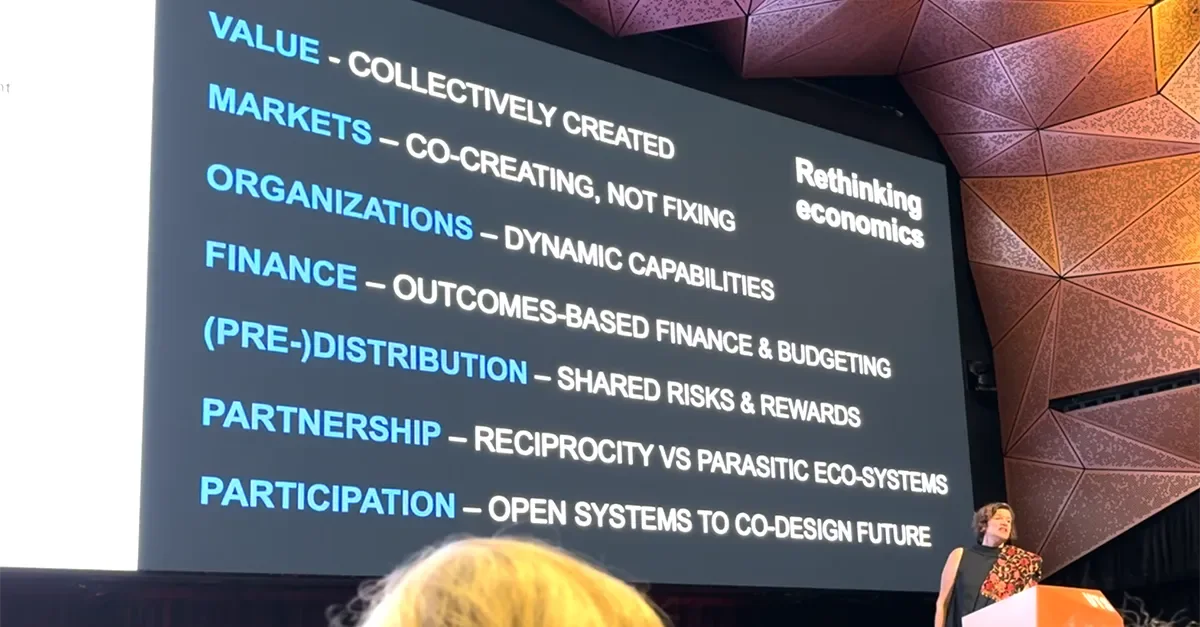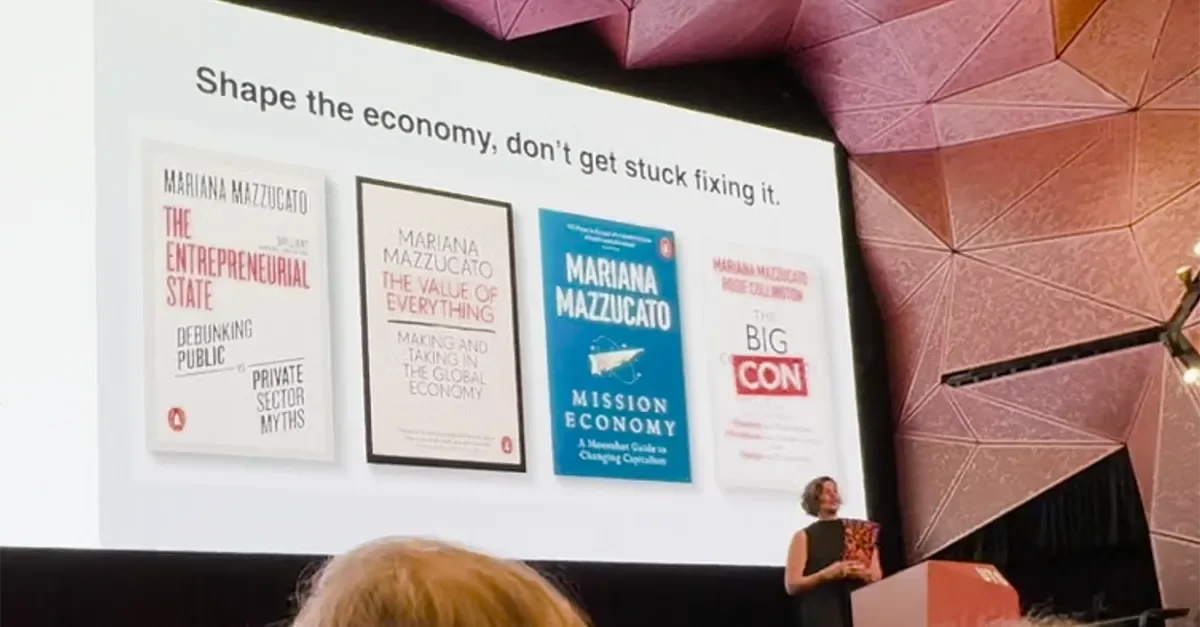So why do we think the ‘Social Good Economics’ she presents and is now writing her fifth book about is so important and worth paying attention to? And why was UTS Business School, where it was delivered, so resonant for Shapeable?
Roy Green and the UTS Business School
Fifteen years ago, Scott David and the Shapeable team worked on the digital transformation of the University of Technology Sydney (UTS) Business School. The project was known as Business 21C, and although there is barely a remnant of it (even on the Wayback machine) Professor Green’s visionary endeavour spawned several iconic innovations, including the Dr Chau Chak Wing Building designed by Frank Gehry and funding the birth of TedXSydney.
For Shapeable, this was the first time we played with the connected knowledge and transformational thinking that Scott David then took to the World Economic Forum, designing and prototyping their technological innovations such as the member’s portal TopLink, Strategic Intelligence (aka Transformation Maps), public website, global indexes (Global Competitiveness, Gender Parity, Inclusive Growth, etc), and more. This lecture was a resonant meeting of minds.
The Mission-Led Australian Tour
In her talk, Mazzucato promoted a shift towards problem-solving economic strategies - purpose-driven, inclusive, and sustainable - focusing on collaborative approaches involving all stakeholders and ‘voices’. The role of government should not be to fix markets after failure and let the taxpayer pick up the bill.
“For me, this is not about innovation. It’s not about entrepreneurship. It really is about reorienting economies. How do we admit that growth is an outcome? Productivity is an outcome? It’s an outcome of investments. Investments in human capital. In physical capital, but especially those collaborative investments which can help us build collective intelligence into the system to help solve some of the biggest challenges that we have globally.” - Mariana Mazzucato
Her keynote focused on the role of economic governance in creating innovation and sustainability. She emphasised the importance of effective administrative capacity, and critiqued the current approaches around business and community value creation. She advocated for intersectoral policymaking (cross-portfolio strategies) to de-silo information and embed conditions in public programs that promote responsible business practices. She highlighted the historical role of non-government organisations such as trade unions in shaping social innovations (the weekend, holidays, sick pay) and the need for comprehensive policies regarding critical minerals.
Mazzucato's latest white paper is Governing the economics of the common good: from correcting market failures to shaping collective goals, and will be the subject of her next book.
The Shapeable Connection
For Shapeable, attending this keynote was a timely reminder of why we, and the emerging systems change market, exist; that we are on the right track in creating a digital platform and consultancy to help realise Missions, Moonshots, and Grand Challenges; that our work in ending the ‘blah, blah, blah’ – as Mazzucato’s children say – and transforming ‘Collective Intelligence into Collaborative Action’ is timely and effective.
Read more articles like this on our Shapeable Newsletter




